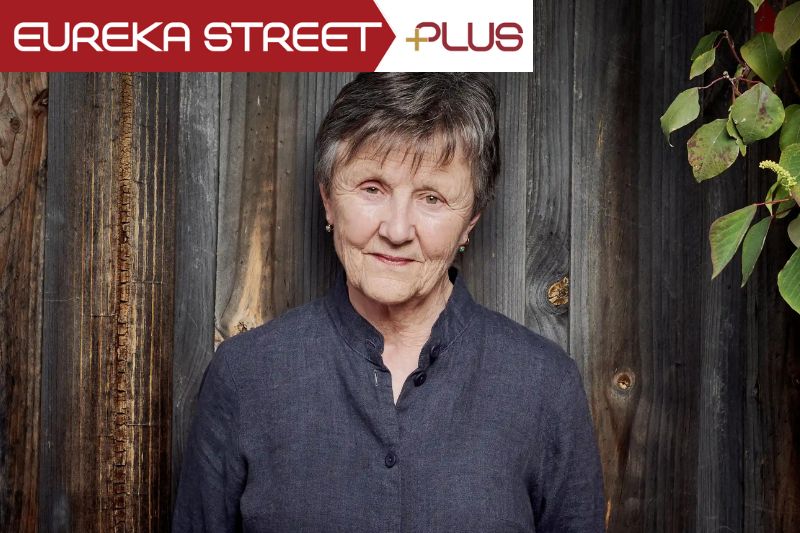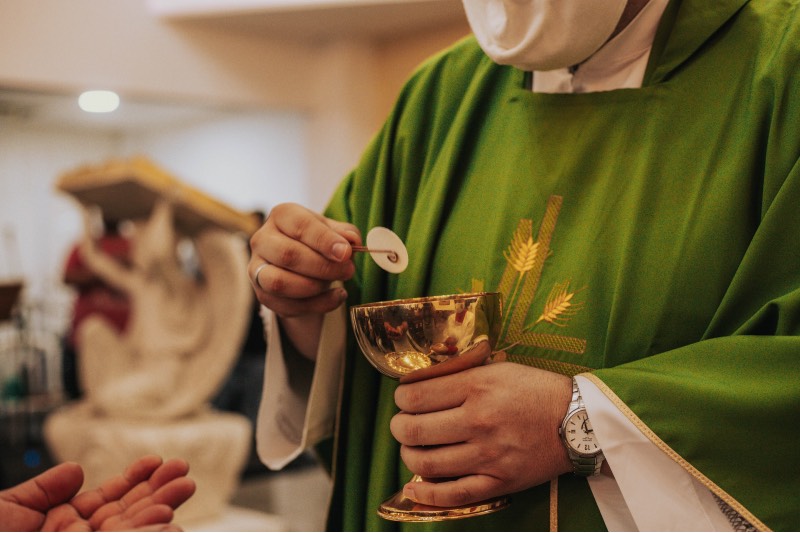Keywords: Dying With Dignity
-

ARTS AND CULTURE
- Paul Mitchell
- 04 January 2024
Arguably Australia’s most celebrated living author, Helen Garner has built a reputation as a fearless and unapologetic writer whose work has remained fresh and relevant for over 45 years. We sat down with Helen to explore the challenges of confessional non-fiction, her fondness for church, and her commitment to unsparing self-analysis.
READ MORE 
-

ENVIRONMENT
- Sarah Bacaller
- 30 June 2023
1 Comment
The work of Tony Rinaudo has contributed to the regeneration of over six million hectares of desertified land in Niger alone. Farmer Managed Natural Regeneration (FMNR), is an approach to reforestation has become a global movement and is gaining popularity as a tool in the fight against climate change.
READ MORE 
-

ARTS AND CULTURE
- Paul Mitchell
- 17 February 2023
3 Comments
Arguably Australia’s most celebrated living author, Helen Garner has built a reputation as a fearless and unapologetic writer whose work has remained fresh and relevant for over 45 years. We sat down with Helen to explore the challenges of confessional non-fiction, her fondness for church, and her commitment to unsparing self-analysis.
READ MORE 
-

FAITH DOING JUSTICE
- Michael McGirr
- 09 September 2022
5 Comments
The Way had been a community of homeless people, built around difficult but wonderful characters. It taught me more than I can easily say. It was a world where things were not always as they seemed and people did not fit into little boxes. We had many challenging days and relationships with our guys were seldom easy, but there was an energy that found light in unexpected places.
READ MORE 
-

AUSTRALIA
- Andrew Hamilton
- 07 April 2022
6 Comments
Palm Sunday alternates between March and April. When, as this year, it is celebrated in April it keeps company with a number of days that provoke us to ask what and who matter, what and whom can you trust. If it is a cruel month, it is so because it tests, even mocks, our comfortable assumptions. In a year overshadowed by manifestations of climate change, of persistence of Covid and of the horrors of war, it is not a bad month to endure an election.
READ MORE 
-

AUSTRALIA
- Greg Craven
- 25 January 2022
53 Comments
One reasonably could ask whether this is the moment to write a book about the potential of Catholic Social Theory to contribute to Australian politics and policy. After all, the Church is still struggling to come to terms with decades of child abuse, hardly a recommendation for social potential. We currently also are attempting to make sense of a Plenary that is both confused and confusing.
READ MORE 
-

RELIGION
- Andrew Hamilton
- 09 September 2021
24 Comments
In recent weeks the value of human life has become a topic of public conversation in different contexts. Proposed legislation on abortion and assisted dying has continued to focus attention on it. Debate about loosening COVID restrictions has also balanced the risk of death from the disease with risks to health and economic welfare from lockdowns. In Afghanistan the victory of the Taliban has again raised questions about the morality of the war and the killing involved by both sides.
READ MORE 
-

RELIGION
- Andrew Hamilton
- 08 July 2021
38 Comments
Looking from outside at the debates among American Catholics about whether President Biden should be refused communion has been a little like watching the crowd in a Rangers v Celtic game in Glasgow. Much that was said and done fervently in the name of faith showed little familiarity with it. To understand the issue we must enter the Catholic imaginative world in which the Eucharist is central.
READ MORE 
-

ARTS AND CULTURE
- Tim Kroenert
- 19 August 2016
6 Comments
The film's quiet humour leaves open many spaces for reflection on getting older, and on mortality. Tomas is uncomfortable with the subject of death, but Julian is determined to confront it with honesty and dignity. His activities during those four short days reveal he possesses a well formed conception of his own humanity and mortality that is not short of admirable. We are as sympathetic to Paula raging against her cousin's resignation, as we are to Tomas' growing acceptance.
READ MORE 
-

AUSTRALIA
- Lisa Stewart
- 07 December 2015
14 Comments
The first thing I see is a familiar tableau: Mother and Child, seated, the sweep of the lines of the mother's body sculpting a circle of security and warmth around the gentle wrigglings of her baby. Except that this is no Christian Madonna, but a young Muslim woman in her early 30s, quiet, gentle and shy. Seated on her lap is her little child who has my heart the minute I lock eyes with her. Dancing around her is a skinny, black-haired seven-year-old girl with the same smile, and far too much energy for the space permitted her.
READ MORE 
-

RELIGION
- Frank Brennan
- 03 December 2015
The consideration of medico-legal problems in the public square of a pluralistic democratic society keeping pace with profound technological change is often marked by simplistic assertions, precluding considerations of comprehensive world views, whether religious or philosophical. It is now commonplace for doctors to be told to leave their consciences at the door, as their patients are consumers and they are suppliers and of course the market decides. Debates about law and policy are often resolved with simplistic assertions about individual rights and autonomy, with little consideration for the public interest, the common good, and the doctor-patient relationship. Even conscience is said to be a matter for contracting out. This evening I ask whether there are more compelling ways to resolve medico-legal dilemmas, while conceding a limited role for law in determining the range of acceptable answers.
READ MORE
-

RELIGION
- Frank Brennan
- 27 November 2015
2 Comments
'The crisis of child sexual abuse in our societies has required that our institutional procedures be more transparent and that we learn from the ways of the world in exercising power openly and justly. This means we have to restructure some of our church arrangements so that power is exercised accountably and transparently. All of us who have positions of influence and power in institutional churches need to be attentive to the voices of those who have suffered within our institutions.' 'Discerning the place for the prophetic voice and pragmatic cooperation of the churches in the great moral questions of the age', address to the Association of Practical Theology in Oceania conference, 26 November 2015.
READ MORE